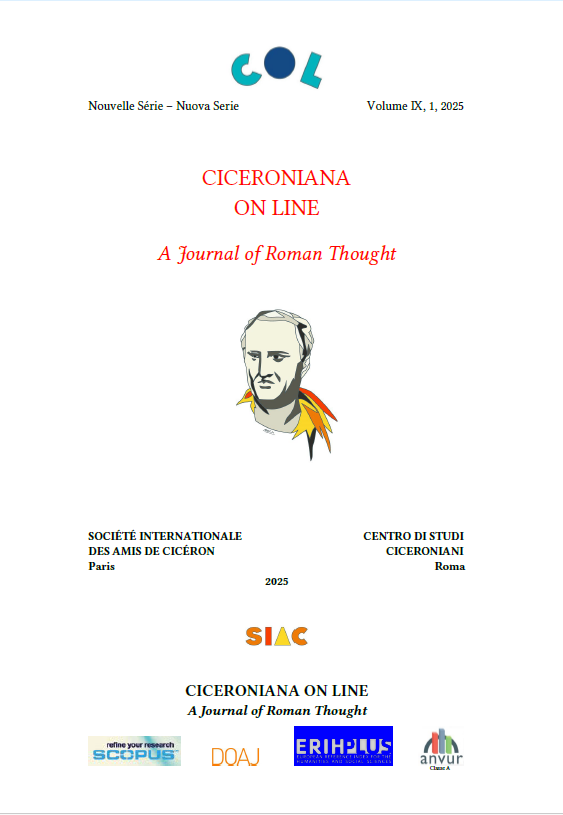Role-Based Persuasion and Strategic Embarrassment in Cicero’s Letters
Abstract
This paper uses role theory to conduct a close reading of four letters written to Cicero in 49 BC by Marcus Antonius, Julius Caesar, and Marcus Caelius Rufus: three in which the writers attempt to convince Cicero not to join Gnaeus Pompeius in his conflict against Caesar (Att. 10, 8A-B; 10, 9A), and an exchange between Antonius and Cicero regarding the recall of Sextus Cloelius (Att. 14, 13A-B). It argues that a focus on the development of roles within epistolary correspondence provides new insight into the relationship between “facework” and persuasion, which builds upon established models of interactional analysis such as politeness theory. Specifically, it argues that letter writers could challenge the face of their interlocutor by emphasising the need to conform to aspects of the roles they occupied within society. Having established the presence of this persuasive strategy within Cicero’s letters, the paper offers a reflection on the broader utility of role theory as a model for the analysis of Ciceronian and broader Roman communication.
Downloads
Downloads
Published
How to Cite
Issue
Section
License
Copyright (c) 2025 Ciceroniana On Line

This work is licensed under a Creative Commons Attribution-ShareAlike 4.0 International License.
Authors who publish with this journal agree to the following terms:
- Authors retain copyright and grant the journal right of first publication with the work simultaneously licensed under a Creative Commons Attribution License that allows others to share the work with an acknowledgement of the work's authorship and initial publication in this journal.
- Authors are able to enter into separate, additional contractual arrangements for the non-exclusive distribution of the journal's published version of the work (e.g., post it to an institutional repository or publish it in a book), with an acknowledgement of its initial publication in this journal.


 Ciceroniana On Line is recognised by ANVUR (the National Agency for the Evaluation of the University System and Research) as a CLASS A journal for the Sciences of Antiquity, Philology, Literature and History of Art (
Ciceroniana On Line is recognised by ANVUR (the National Agency for the Evaluation of the University System and Research) as a CLASS A journal for the Sciences of Antiquity, Philology, Literature and History of Art ( The journal is included in DOAJ. The DOAJ listing of the journals is available at
The journal is included in DOAJ. The DOAJ listing of the journals is available at  The journal is indexed in
The journal is indexed in  The journal has been included in ERIH PLUS. The ERIH PLUS listing of the journals is available at
The journal has been included in ERIH PLUS. The ERIH PLUS listing of the journals is available at 
